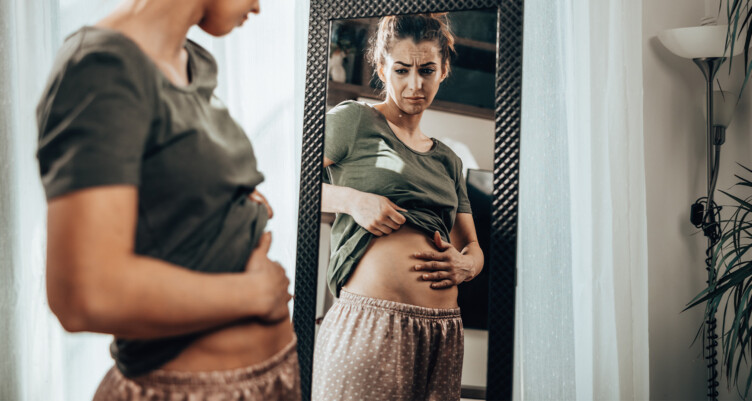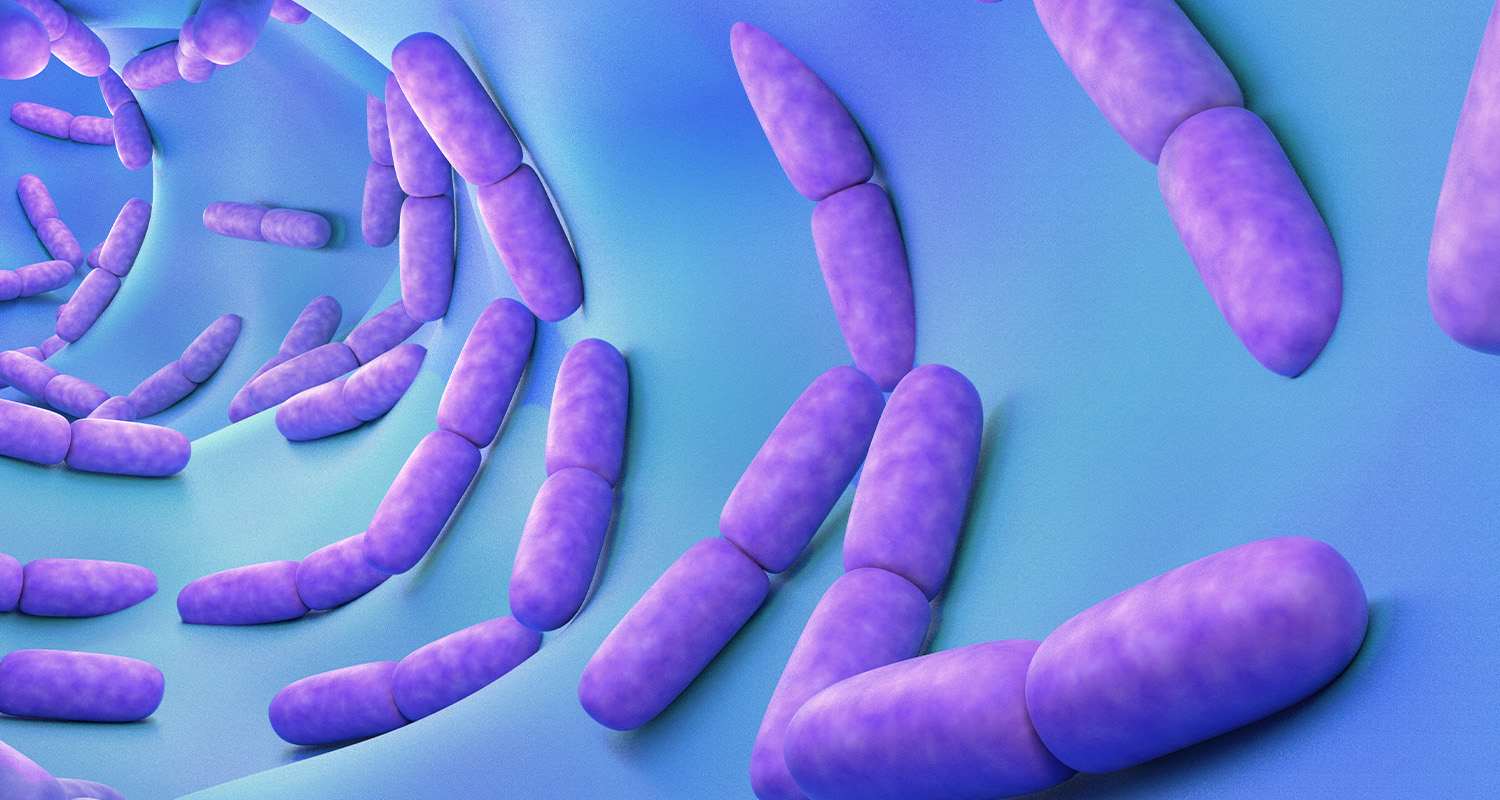Do Probiotics Help with Bloating? Find Out How They Can Ease Your Discomfort

- Bloating happens when your stomach fills with trapped air or gas. It can cause the stomach to feel swollen and tight.
- Probiotics may help to minimize bloating by introducing healthy bacteria to the gut. But they can also cause bloating in some people.
- There are several types of probiotics that can help. These include Bulletproof’s InnerFuel Prebiotic and Express 3-In-1 Probiotic.
Bloating is that uncomfortable feeling of fullness in your stomach that can make you feel like you swallowed a balloon. It can also give you a serious case of the blahs. If bloating is an issue for you, probiotics may help. Probiotics are live microorganisms that improve the “good” bacteria in your gut. Those bacteria are also known as the gut microbiome.[1]
For some, probiotics can have the opposite effect and cause the stomach to fill with gas. So, do probiotics help with bloating? Keep reading to learn about the causes of bloating and whether probiotics are the key to relief.

What Is Bloating?
Bloating is the uncomfortable feeling of fullness in the abdomen. It occurs from a buildup of air or gas in the gastrointestinal (GI) tract.[2] Your stomach may feel swollen or hard. Your stomach may also increase in size. This is distention.
What causes bloating? Eating too fast is a common cause of abdominal bloating. Constipation and irritable bowel syndrome (IBS) are also common causes.
Others include:
- Food intolerance
- Carbonated beverages
- Celiac disease
- Overeating
- Fluid retention
- Menstrual symptoms
- Infections
- Chewing gum
- Eating salty foods

What Are Probiotics?
Probiotics are live organisms found in food and dietary supplements. They are often referred to as “good” or “friendly” bacteria. They help keep a balance of bacteria in the gut. This improves the environment in the gut, which, in turn, supports good digestive health.[3]
Probiotics occur in fermented foods. These include sauerkraut, kombucha, yogurt and miso. Learn more about each in our blog about the best foods for gut health.
You can also take a probiotic supplement, such as gut health supplements and probiotics specifically for women. There are also prebiotic supplements. These act as food for probiotics. Bulletproof InnerFuel Prebiotic is a fiber supplement that may help with gas and bloating by feeding the good gut bacteria.
Benefits of Probiotics
Probiotics have garnered a lot of buzz in recent years — and for good reason. These friendly bugs come with a lot of perks, such as:
They may support digestive health
Probiotics restore balance to the gut environment. Because of this, they have been found to improve symptoms of several digestive conditions.
A 2022 study found that probiotics may help with some of gut related symptoms when combined with a gluten-free diet, for those with gluten allergies.[4] A total of 170 children were split into two groups. The children put on a gluten-free diet and given a probiotic experienced less diarrhea. This was versus the group that was strictly put on a gluten-free diet.
They may support skin health
There are more than 1,000 kinds of bacteria on the skin.[5]
Several studies have shown that probiotics may help keep the skin looking its best. They do this by protecting the skin from oxidative stress.[6] Oxidative stress occurs when there is an imbalance of free radicals and antioxidants in the body. Left unchecked, free radicals — such as those produced by exposure to UV rays and pollution — contribute to premature aging.
Types of Probiotics
There are many types of probiotic strains. Bifidobacterium and Lactobacillus are the most used in supplements.
Other common strains include:
- Saccharomyces
- Streptococcus
- Enterococcus
- Escherichia
- Bacillus
A probiotic supplement may contain one type of strain or several. It might also contain prebiotics and postbiotics. Postbiotics include byproducts of probiotics when they eat prebiotics. Bulletproof Express 3-In-1 Probiotic is an all-in-one blend. It contains the building blocks of good gut health: prebiotics, probiotics and postbiotics.
Prefer the collagen route? Try our Gut Health Collagen Protein. It contains a helpful serving of collagen, prebiotics and probiotics in every scoop.

Will a Probiotic Help With My Bloating?
Probiotics may help with bloating. They do this by introducing beneficial bacteria to the gut. The research is limited, though, and particularly focused on those with digestive issues.
Since everyone’s gut microbiome is different, some may find that probiotics make their bloating worse. This can especially happen if you take too many at one time.
Bloating and gas are two common side effects people may experience when they begin regularly taking probiotics. For some, the bloating is temporary and goes away once the body adjusts. But for others, probiotics may not gel well with their guts (same goes for the worst foods for gut health).
In general, probiotics are safe to consume. Wondering when to take probiotics? The best advice is to take as recommended on the label. Many are taken at the same time every day. Some are taken with food and others on an empty stomach.
Probiotics may help reduce or stop bloating by restoring the balance of healthy bacteria in the gut. Other benefits of probiotics include improvements in digestive health and improved skin. But probiotics may also cause bloating in some people, especially if you take too many at one time. If that’s the case, try other solutions. For example, try eating smaller meals, eating fewer processed foods and drinking herbal tea.
The effects of probiotics won’t appear right away. They may take a few weeks to a few months to fully kick in. The signs probiotics are working may include better or more frequent bowel movements. Other signs may include less stomach pain and, yes, less bloating.
Sign up for early access to sales, product launches, the latest Bulletproof news and more!



